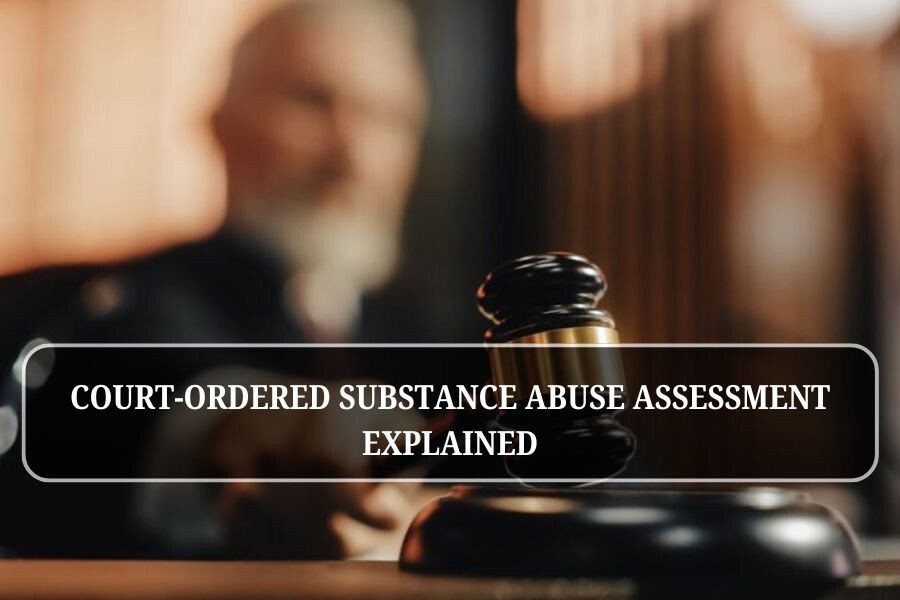If you’ve been told to undergo an evaluation after a drug or alcohol-related incident, you may be confused by the terms SAP evaluation and court-ordered assessment. Though they sound similar, they serve very different purposes.
A DOT SAP program, is specifically required by the Department of Transportation (DOT) for safety-sensitive employees, while a court-ordered assessment is mandated by a judge in cases such as DUI, child custody disputes, or probation.
In this blog, we’ll clearly explain the differences between SAP evaluations and court-ordered assessments, why each is required, and what you can expect from both.
What Is a SAP Evaluation?
A Substance Abuse Professional (SAP) evaluation is a federally mandated process for DOT-regulated employees (like CDL drivers) who test positive for drugs or alcohol.
The SAP’s role is to:
- Assess the employee’s substance use.
- Recommend treatment or education.
- Guide the driver through the Return-to-Duty (RTD) process.
- Ensure compliance with FMCSA Clearinghouse rules.
👉 Without completing a SAP evaluation, drivers cannot legally return to safety-sensitive work.
What Is a Court-Ordered Assessment?
A court-ordered assessment is required by a judge, often as part of a criminal or family court case. Unlike SAP evaluations, these are not tied to DOT employment but to legal compliance.
Common scenarios include:
- DUI/DWI cases – to determine if treatment or classes are needed.
- Child custody disputes – to assess parental fitness and substance use.
- Probation requirements – ensuring individuals meet conditions set by the court.
- Criminal offenses involving drugs or alcohol – to guide sentencing or rehabilitation.
Court-ordered assessments may involve substance abuse, mental health, or psychological evaluations, depending on the case.
SAP Evaluation vs Court-Ordered Assessment: The Key Differences
| Aspect | SAP Evaluation | Court-Ordered Assessment |
|---|---|---|
| Authority | Department of Transportation (DOT), FMCSA | Judge or court system |
| Who Needs It | CDL drivers, airline workers, pipeline, railroad, transit employees | Individuals in DUI, custody, probation, or legal cases |
| Purpose | Ensure compliance & safe return to DOT-regulated work | Fulfill legal requirements & assist court decisions |
| Focus | Substance abuse evaluation for DOT employees | Substance use, mental health, or parenting capacity depending on case |
| Outcome | Required treatment & follow-up for return-to-duty | Treatment, counseling, or other court-mandated conditions |
Which One Do You Need?
- If you are a CDL driver or DOT-regulated employee with a failed drug/alcohol test → You need a SAP evaluation.
- If your issue is related to a legal matter (DUI, custody, probation, etc.) → You need a court-ordered assessment.
It’s important not to confuse the two, as only DOT-qualified SAP providers can conduct SAP evaluations, while court assessments may involve different licensed professionals such as psychologists, counselors, or social workers.
Why Choosing the Right Evaluation Matters
Getting the correct evaluation ensures:
- Legal compliance with court orders or DOT rules.
- Avoiding delays in returning to work or fulfilling legal obligations.
- Proper treatment recommendations tailored to your situation.
👉 At AACS Counseling, we provide both DOT SAP evaluations and court-ordered assessments, helping individuals meet their requirements with professionalism and confidentiality.
Conclusion
While both involve assessments around substance use or mental health, the SAP evaluation vs court-ordered assessment difference lies in who mandates it, the purpose, and the outcome.
- SAP evaluations are strictly for DOT-regulated employees who must comply with federal return-to-duty rules.
- Court-ordered assessments are required by judges in legal cases and may cover broader areas such as DUI, custody, or probation.
👉 Need help with the right evaluation? Contact AACS Counseling today to schedule a confidential SAP evaluation or court-ordered assessment that meets your specific requirements.
